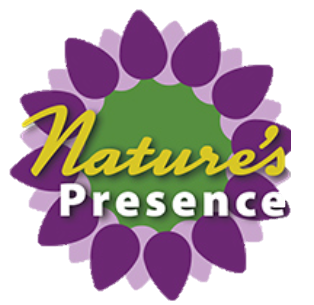March is National Women’s Month!
We’re celebrating women today and everyday. Learn about some popular topics relating to women’s health and natural supplements that can help achieve balance and optimal wellness.
Hormone Balance
Because hormones naturally fluctuate during different life stages, hormone imbalance is very likely to occur especially with menstrual cycles, menopause, and pregnancy. Recognizing symptoms of hormonal imbalance can help you act fast in maintaining hormonal stability. These symptoms include:
Mood Swings: Depression and emotional instability can occur due to fluctuations in estrogen. This female sex hormone can influence neurotransmitters in the brain, such as serotonin, which is responsible for maintaining mood. Taking steps to change aspects of your lifestyle can help reduce these hormonal mood swings. Exercise, reducing alcohol intake, dietary improvements, and herbal supplementation can provide substantial relief. Great herbs for reducing hormonal mood swings include St. John’s Wort, Maca, and Chaste Berry.
Low Libido: Perimenopause and menopause often cause low libido due to decreasing levels of estrogen and testosterone. Hot flashes, fatigue, imbalanced mood, and anxiety can also contribute to a poor sex life. Natural supplements to help boost libido include Maca, Saffron, and L-Arginine.
Heavy or Painful Periods: Abdominal pain, frequent urination, lower back pain, and constipation may indicate you have fibroids, which are non-cancerous growths found in or near the womb. Fibroid growth is thought to be initiated by estrogen, but family history and genetics are also factors. It’s always best to check in with your doctor to see if you have fibroids if these symptoms occur. Herbal supplements to help relieve painful periods include Red Raspberry Leaf, Turmeric, Ginger, Motherwort, and Black Cohosh.
Unexplained Weight Gain: An underactive thyroid (hypothyroidism), menopause, and PCOS can all greatly influence hormone levels. These fluctuations can promote weight gain specifically around the abdomen. If unexplained weight gain occurs, it is always best to consult with your doctor or a women’s health expert to identify if you have ovarian cysts (PCOS) or thyroid issues. Lifestyle changes like exercise and dietary improvements may help you lose weight in the meantime, and may be used in conjunction with your doctor’s protocols.
For more symptoms of hormone imbalance, check out this article by Hormone Health.
Fertility
Fertility has been found to have an interdependent relationship with nutrition and dietary choices. However, other factors may threaten fertility, including smoking, exposure to environmental pollutants, stress, and overconsumption of caffeine or alcohol. Metabolic disorders such as diabetes and obesity can also influence fertility.
80 million
women experience infertility worldwide, according to The Frontiers Journal in Endocrinology.
While there are several factors influencing fertility, nutrition is one of the most influential factors. Malnutrition, obesity, and excess weight can inhibit optimal fertility. The Food, Lifestyle, and Fertility Outcome Project revealed a diet rich in fish, legumes, vegetables, and low carbohydrates promotes a 40% increase in a woman’s ability to conceive. Furthermore, the Seguimiento Universidad de Navarra (SUN) Project revealed couples who maintain a balanced diet have better reproductive outcomes. Overall, ensuring you and your partner are obtaining a vast, healthy diet is an crucial aspect in fertility and reproductive health.
Menopause
According to The North American Menopause Society, some herbs have the potential to relieve hot flashes and other menopausal symptoms, identified as Black Cohosh, Evening Primrose oil, and Dong Quai.
Black Cohosh: this herb has a good safety record for long-term use and has substantial scientific evidence showing it can relieve hot flashes. Additionally, Black Cohosh has been confirmed to NOT imitate estrogen, which reduces concerns about its interaction with hormone-sensitive tissue (ex. uterus, breast).
Evening Primrose oil: this natural remedy can be used to reduce and relieve hot flashes, but should be used in moderation. Studies have shown Evening Primrose oil can create side effects including inflammation, diarrhea, nausea, and reduced immunity.
Dong Quai: this herb is not as effective in relieving hot flashes, but it has been widely used for period pains, menopause, and menstrual irregularities.
Hops: this herb helps reduce hot flashes, emotional imbalance during menopause, sexual dysfunction, stress, and associated insomnia. It should be used sparingly because hops contains phtyoestrogen (plant-based estrogen) that can potentially disrupt hormone balance and menstrual cycles.
Mood & Emotional Balance
Menopause and menstruation can evoke emotional ups and downs. Herbs that can help maintain emotional wellbeing include:
St. John’s Wort for menopausal irritability, depression, and anxiety.
Chamomile for a gentle sedative to promote relaxation. Other herbs for improving sleep quality and reducing stress or anxiety include passionflower, hops, lemon balm, and valerian.
Korean Ginseng works to relieve stress, fatigue, physical exhaustion, and improve stamina. This herb is great to improve libido and sexual desire.
Saffron can help boost mood and stabilize emotions during menopause or menstrual cycles.
Knowledge is power! We hope this article gives some insight about herbal healing for women. Stop by and visit us to browse our Women’s Health section. We are here to answer questions, do additional research, and provide informative literature to help you stay informed and healthy.
Trusted References
Auluck, Tina. “10 warning signs you may have a hormonal imbalance (and what to do about it).” Hormone Health, 6 January 2020, https://hormonehealth.co.uk/blog/10-warning-signs-you-may-have-a-hormonal-imbalance-and-what-to-do-about-it/. Accessed 2 March 2022.
Jean Hailes for Women's Health. “Menopause & herbs.” Jean Hailes, https://www.jeanhailes.org.au/health-a-z/natural-therapies-supplements/menopause-herbs. Accessed 7 March 2022.
The North American Menopause Society. “Herbal Remedies for Menopause, Menopause Information & Articles.” North American Menopause Society, https://www.menopause.org/for-women/menopauseflashes/menopause-symptoms-and-treatments/natural-remedies-for-hot-flashes. Accessed 7 March 2022.
Panth, Neelima, et al. “Nutrition and Female Fertility: An Interdependent Correlation.” Frontiers, 7 June 2019, https://www.frontiersin.org/articles/10.3389/fendo.2019.00346/full. Accessed 2 March 2022.



